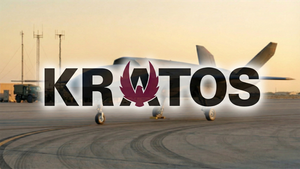
As globalization continues to expand, many Canadian corporations are increasingly establishing and managing subsidiaries in the United States. Along with the opportunities presented by such cross-border business ventures come a myriad of complexities, particularly in repatriating earnings from U.S. subsidiaries back to Canada. To optimize tax efficiency while ensuring compliance with both U.S. and Canadian tax laws, companies must employ strategic tax planning and understand the legal nuances of transferring funds across borders.
In an effort to raise awareness and provide educational resources, Cardinal Point Wealth Management has highlighted a series of effective strategies for repatriating U.S. earnings to Canada. These strategies include debt repayment, management fees, dividend distribution, liquidating distributions, and upstream loans. Each method has distinct tax implications and requires careful consideration.
Debt Repayment: A Strategic Approach
One of the most common strategies is the repayment of debt from a U.S. subsidiary to its Canadian parent. On the U.S. side, if the interest payments qualify under tax laws, they are not subject to U.S. tax, which makes this approach attractive. However, non-qualifying interest payments are subjected to a 15% U.S. withholding tax. Additionally, if the Internal Revenue Service (IRS) recharacterizes the debt as equity, both the principal and interest payments may face withholding taxes ranging from 5% to 30%.
In Canada, the repayment of the principal is non-taxable, but the interest income is subject to taxation. Proper documentation and adherence to market terms are critical to prevent any unfavorable tax treatment by Canadian authorities.
Management Fees: Balancing Deductions and Tax Obligations
When it comes to management fees, they can be deducted in the U.S. if they meet specific criteria, such as being ordinary and necessary business expenses. It is imperative that these fees are paid at an “arm’s-length” basis and are only deductible in the year they are incurred. Notably, when payments are made to related non-U.S. persons, they must be disclosed using IRS Form 5472 to avoid penalties, which can reach $25,000 for non-compliance.
However, despite being deductible in the U.S., these management fees are taxable in Canada. The differential between the U.S. federal and state corporate tax rates (averaging around 26%) and Canadian rates (ranging from 11% to 27%) must be strategically managed to optimize tax outcomes.
Dividend Distribution: Navigating Withholding Tax Rates
The U.S. enforces specific withholding tax rates on dividends distributed to Canadian corporations:
- 5% for Canadian corporations owning at least 10% of U.S. voting shares
- 15% for other qualifying Canadian residents
- 30% statutory rate for all others
From a Canadian perspective, dividends received from a U.S. subsidiary’s “exempt surplus” — arising from active business income—may not be subject to Canadian corporate tax. Non-exempt surplus dividends, however, are taxable. Canadian individual shareholders receiving these dividends can benefit from a preferential personal tax rate when the funds are redistributed as eligible dividends.
Liquidating Distributions and Upstream Loans
Complete liquidations of a U.S. corporation typically do not trigger U.S. withholding tax but do have Canadian tax implications. Corporations need to be aware of exceptions and ensure proper documentation for optimal tax efficiency.
Upstream loans, where a U.S. subsidiary lends money to a Canadian shareholder, carry significant risks. If the U.S. subsidiary has earnings and profits, such loans may be reclassified as dividends, triggering U.S. withholding tax. Best practices include limiting the loan term to one year or less, adhering to market terms, and ensuring the loan serves a well-defined purpose.
Conclusion: The Importance of Early Tax Planning
Cardinal Point Wealth Management emphasizes that proactive tax planning is crucial to effectively manage the repatriation of U.S. earnings to Canada. Strategies must be tailored to navigate the complex regulatory landscape and ensure compliance with both jurisdictions. Businesses are encouraged to seek the guidance of tax professionals with expertise in cross-border tax planning to optimize their financial outcomes and maintain regulatory compliance.
About Cardinal Point Wealth Management
Cardinal Point Wealth Management is a leading cross-border financial advisor dedicated to serving clients with integrated wealth management solutions. Specializing in cross-border tax planning, cross-border financial advisory, and comprehensive cross-border wealth management, the firm assists individuals, families, and corporations in navigating the intricacies of cross-border financial and tax landscapes.
Media Contact
Company Name: Cardinal Point Wealth Management
Contact Person: Kris Rossignoli
Email: Send Email
Phone: 8662132036
Address:2255 Glades Road, Suite 324A
City: Boca Raton
State: FL 33431
Country: United States
Website: https://cardinalpointwealth.com/




